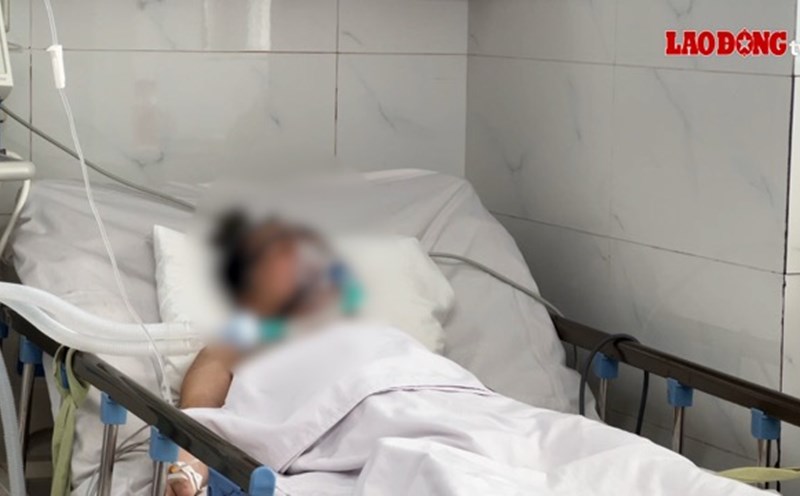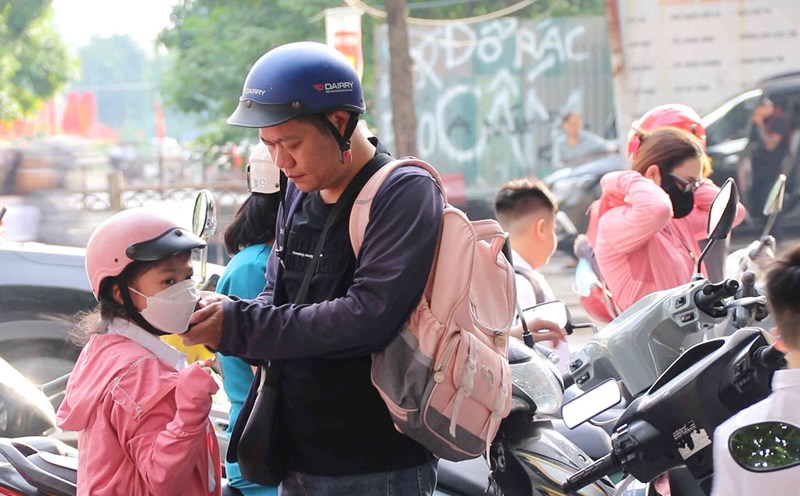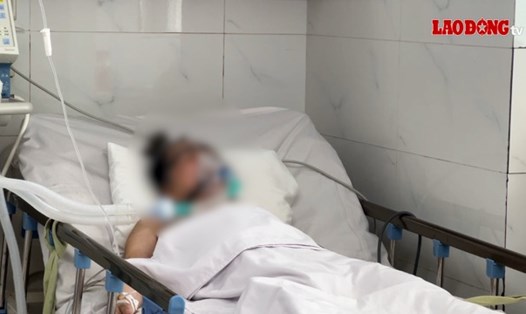On November 13, the Vietnam - Cuba Dong Hoi Friendship Hospital (Quang Tri province) said that from October 20 to November 12, 63 cases of influenza were recorded, an increase of nearly 5 times compared to the previous period (September 25 - October 19) with only 13 cases.
Talking to reporters of Lao Dong Newspaper, Doctor CKII Pham Thi Ngoc Han - Head of the Department of Pediatrics, Vietnam - Cuba Friendship Hospital Dong Hoi said that recently, the number of children coming for examination and treatment for influenza has tended to increase rapidly.
Most patients were admitted to the hospital with symptoms of high fever, headache, fatigue, cough and runny nose. The main treatment regimen is to reduce fever, monitor health, rehydrate and maintain proper nutrition.
According to Dr. Han, the changing seasons are the period when the influenza virus is easily spread and spreads strongly in the community. In particular, young children are at high risk of complications if not treated promptly.
Doctor Han recommends that people should be vaccinated against influenza at the beginning of the season, and at the same time take disease prevention measures such as limiting large gatherings, wearing masks when going out, washing their hands regularly and strengthening resistance with a diet rich in vegetables, fruits and vitamins.
According to Mr. Do Quoc Tiep - Director of the Center for Disease Control (CDC) of Quang Tri province, the unit is coordinating with medical facilities to strengthen supervision and statistics of cases, in order to detect and control early.
This is the time when seasonal flu often flare up. People should not be subjective because flu strains can cause serious complications, especially for children. When there are symptoms of high fever, cough, and prolonged sore throat, they need to go to a medical facility for examination, testing, and proper treatment.
Currently, the Vietnam - Cuba Dong Hoi Friendship Hospital is continuing to monitor and update flu developments, and at the same time recommends that people proactively prevent the disease to avoid the flu spreading in the community.











